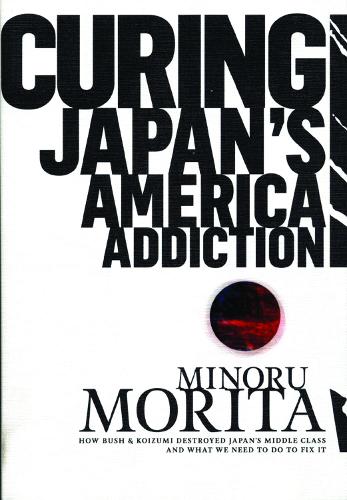
Curing Japan's America Addiction: How Bush & Koizumi Destroyed Japan's middle class and what we need to do to fix it
(Paperback)
Publishing Details
Curing Japan's America Addiction: How Bush & Koizumi Destroyed Japan's middle class and what we need to do to fix it
By (Author) Minoru Morita
Chin Music Press
Chin Music Press
7th October 2008
United States
Classifications
Tertiary Education
Non Fiction
International relations
Geopolitics
Politics and government
380.13
Physical Properties
Paperback
224
Width 134mm, Height 193mm, Spine 20mm
297g
Description
This is the progressive version of "The Japan that Can Say No," a largely succesful, right-wing book by current Tokyo governor Shintaro Ishihara. Morita's arguments resemble those of Howard Zinn. They both put the people first. Morita argues that the ruling LDP's addiction to the American Republican Party is destroying Japan's social fabric, making it less egalitarian. Morita used to appear on national TV every week in Japan. But as the political leadership turned toward the right in the 1980s and 1990s, he found that fewer media organizations would invite him to speak. Today, some journalists claim he is blackballed by the Japanese media. Ever the fighter, Morita, at age 75, has turned to the lecture circuit and the foreign press to get his message out. He has been quite successful at both attempts. In July 2007 alone he was quoted in the New York Times, Bloomberg, the Financial Times and the Times of London. Morita has written more than 30 books in his career, many of them strong sellers. This title will combine passages from his latest book with excerptts and chapters from earlier works that will be especially revealing to American readers. Morita's prose sizzles with passion. This is not an academic piece, but a passionate and well-reasoned argument that Japan needs to thrust the LDP from power, create a two-party system and restore its social fabric.
Author Bio
Minoru Morita used to appear on Japanese TV regularly as a political commentator, but his progressive views and outspoken criticism of the popular former prime minister Koizumi alienated major media outlets. He now runs a thinktank, Morita Research Institute, and lectures and writes. He has published more than 30 books in Japanese on politics, media and society.
